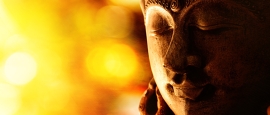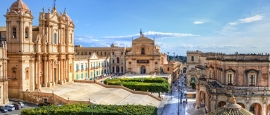Off the Beaten Track in India
With just 10 months to go before India hosts the 2010 Commonwealth Games, Emma Field escapes the country's well-trodden tourist hotspots to discover more about the nation’s favourite brew: tea.
Verdant Assam is to tea what Venice is to canals, Paris is to fashion and Colombia to cocaine.
Assam is one of only two areas in the world with its own native tea bush and is the world's second-largest producer of tea. I chose to immerse myself in Assamese tea lore in Dibrugarh, which boasts the coveted title of Tea Capital of Assam as well as a new airport.
It's a world away from India's popular tourist trails so don't expect to see many other foreigners during your stay. You can expect, however, to thoroughly impress your friends with your adventurous spirit and new-found knowledge.
Tea plantations
The British established the first Indian tea plantations in Assam over 150 years ago. It is an indescribably pleasant experience to wander through the tea plantations as the trees casts dappled shadows across the bushes, learning about the tea-making process as it's going on around you.
The tea pluckers, wearing broad, pointed straw hats, work two shifts a day, each plucking around 20kg of tea leaves which they carry in a bundle on their heads to the weighing machine. They pluck the tea bushes on a weekly rotation - if the young leaves are left any longer, the taste of the tea is affected.
From the tea plantation, the lesson in tea production proceeds to the factory where a roll call of machinery that wouldn't be out of place in Bertha rolls, sorts and grades the tea before it is sent off to auction. Well-known brands such as Lipton and Tetley then buy the stuff from different growers to blend the tea you and I know and love.
How to taste tea
Naturally, the only way to follow a tour of a tea plantation and factory is with a tea tasting. The manager of the tea estate personally conducts tea tasting sessions every day - he tests each batch produced in the factory, which means tasting tea up to four times a day.
He does it by adding 100ml of boiling water to three grams of tea. After covering and letting it brew for five minutes, he separate the leaves and pours the liquid into a large cup to cool. Observing the infusion (the brewed tea leaves) is critical: the brighter the leaves, the better the tea.
After adding two teaspoons of milk, he inspects the liquor (the tea itself) to ensure the colour is bright and golden. Finally, he tastes the tea by slurping it to allow the flavour to spread across his tongue. A good cup of tea is brisk, refreshing and smooth rather than flat.
Following his example, I tasted tea of different ages, comparing the various cups. The younger tea clearly tasted fresher and was livelier and brighter.
Where to stay
I stayed in Chowkidinghee Chang Bungalow, which, like all chang bungalows in Assam, was built raised on stilts to allow the colonial gent to mount his elephant with ease - no tiresome ladder or ungainly scrambling required. The height also made it harder for man-eating beasts to creep up on the bungalows' two-footed occupants.
Nowadays there's not much need for either protection from tigers or elephant riding, although Michael Palin did visit Chowkindinghee's sister bungalow, Mancotta, to see the plantations from the grand height of an elephant's back as he toured the area for his Himalaya TV series. The bungalow has been restored and inside, it eerily resembles a rustic English cottage with sofas, polished wooden floors and a fireplace, though with temperatures during my visit hitting 38ºC, I failed to see the appeal of a roaring log fire.
The view from the bungalow's delightful veranda tells a very different story. Instead of quaint English countryside, the bungalow is surrounded by a well-kept hedge that, by night, exotically flickers with fireflies and, beyond that, tea plantations.
Insider tip to Assam: The ultimate cup of tea is made from leaves plucked in May, June and July, at the height of the growing season.
* Indus Tours and Purvi Discovery offer a nine day, full board package from £82pp per night (based on two sharing), including a tea plantation tour and other activities.
Do you have any Feedback about this page?
© 2026 Columbus Travel Media Ltd. All rights reserved. No part of this site may be reproduced without our written permission, click here for information on Columbus Content Solutions.









 You know where
You know where